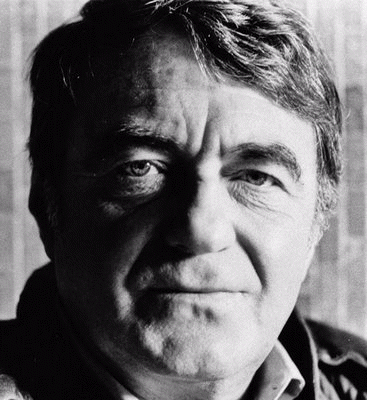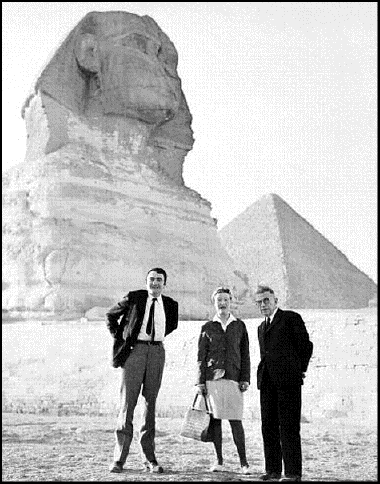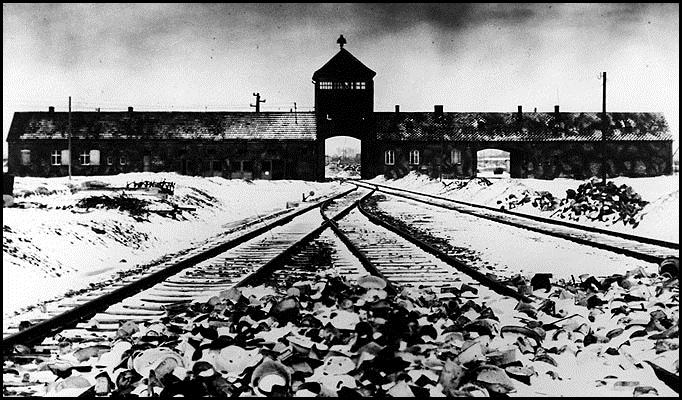A Memoir
Claude Lanzmann
Frank Wynne, Translator
(Farrar, Straus and Giroux)

The TLS called Claude Lanzmann "one of the last towering intellectuals of post-war France." He writes like a dream, and has done all those things you and I wish we could be able to do while we were still able. He is now eighty-six years old, and this is his superb biography, as published originally in French three years ago.
He taught himself to climb the Alps and ski. He joined the resistance in Clermont-Ferrand and fought in the maquis until 1945. He trained himself as a journalist, befriended the stars (and the stars of French philosophy) and the list of people whom he has known or continues to know is way up there in smarts and fame. As a journalist he also got to write anything he wanted (he was editor of Les Temps Modernes).
He was lover to Simone de Beauvoir for seven years and friend of Sartre (at the same time that Sartre was lover to de Beauvoir). Ah the French. He knew Cocteau, Simone Signoret, Marcel Marceau, Sophia Loren, Judith Magree, Mitterand, Giacometti, Pompidou, Costeau --- and he met and interviewed Ben-Gurion, Ariel Sharon, Kim Il-Sung of Korea and Chen Yi of China.
He has had a dozen lady friends to kill for (and to love). With these he joins in that complex of artists, philosophers, stars, movers and shakers, iconoclasts, introverts, trouble-makers, trouble-seekers and the purely troubled that makes the intellectual life of France so bedeviling, if not fascinating. He married rich, flew constantly around the world on behalf of "causes," interviewed anyone he wanted, and in the meantime got to be a boulevardier on the streets of Paris ... eating great meals, thinking great thoughts, inventing great projects.
We bloodless Brits do envy all that, don't we? The tiny cafés, the glass or two of wine, the aroma of garlic and sawdust and Galoise, the confidence of being not only at the center of one of the great cultures of the world, but having that world in a jug. And you hold the cork.
Lanzmann tells us "I have a naturally epic writing style." You can say that again. He started off as a philosopher and traded that in on journalism. Like most journalists (at least those whom are looking for readers), his writing is alert and punchy ... and everything is going somewhere. No noodling around here.
Whether he is writing about smuggling guns in 1940s Nazi-occupied France, almost drowning in the surf off Alexandria, making love to this or that princess, eating (and sleeping with) de Beauvoir while Sartre writes next door, getting lost in the massifs of Switzerland, having the Communists take out a contract on him ...
... in all of this there comes a breathtaking feeling of we-are-there and he-may-not-get-out-of-it alive. And the undercurrent, the Lanzmann-set: what I am doing right now is the most important thing in the world; if I don't do it now, and if I don't it right, all will be lost. No small potatoes here. Every one of Lanzmann's adventures has the feel of ultimate import.
There is a danger in this for all concerned. David Bromwich writing in a recent issue of the LRB speaks of Obama's similar sense of personal (and world) drama:
- It is dangerous for a person ... to regard every action as significant. It means that you consider yourself an embodiment of a symbolic purpose which floats free of the content of actions; a purpose that requires any disturbing break to be viewed in the light of an as yet undisclosed terminus.
It is this kinetic force that makes a reader like me stay up until three in the morning with this book. I have to get up to go to work soon, I can't stay up any longer with this, just ten more pages before I shut it down, please ... until one gets quite sick of being seduced by such a bold, gracious, I've-done-it-all lug.
"I would like to spend an hour with this son-of-a-bitch," we think, and then: the switch, as Lanzmann tells us, so wrongheadedly, about the time he began to surmise that the only leg some of us have to stand on is status: To lose one's status could result in being abandoned by all one's friends, that there comes a moment when no one will help you, that it is possible to die of starvation, of cold, of loneliness, I was extraordinarily sensitive to anything that, to my eyes, concerned naked necessity, anything that exposed the violence underpinning all human relationships.
What nonsense!
Those of us who grew up feeding on the Existentialists will be in our glory here, for we get to spend quality time with Sartre and de Beauvoir. De Beauvoir! Sartre and Lanzmann call her Castor, and here she is in a snit, ones "that never were associated with some wrong done to her nor some misfortune."
- It translated into an utterly unpredictable explosion. Sitting, standing, or lying down, in the car or on foot, in public or in private, she would burst into violent, convulsive sobs, her whole body wracked with gasps, with heartrending cries punctuated by long howls of incommunicable despair.
Lanzmann would "try to comfort her" but
- nothing worked, the convulsive overpowering dread had to progress through every stage until, after a considerable time she would manage to calm herself, but always at the cost of an acute, excruciating awareness of the fragility of human happiness.
There is a wonderful moment in which he explains how it all started with her, and memory, and he then spins a tribute to memory that only a French intellectual could bring off: "Simone de Beauvoir has already described how our love affair began. She did it her way, I will do it in mine: we don't remember the same things, which is normal."
And then there is Sartre. The most fetching passage has to do with Sartre's decision that he must seduce Lanzmann's lovely sister Évelyne.
Sartre's enemies, according to Lanzmann, thought him exceedingly ugly, with his squint, and size, and they "caricatured him as a toad, a gnome, some sordid, baleful creature." Lanzmann sees it differently:
- Sartre had everything it took to seduce Évelyne, complimenting her, his reasons articulate, cogent and neatly strung together. Watching this formidable thinking machine at work, the well-oiled gears and pistons revving until it was at full throttle, left you stunned with admiration, all the more so if the goal of his implacable passionate logic was to flatter you.
This is what immediately engages one about Lanzmann: his ability to cock his eye, see things a little differently than you or I would. Sartre will successfully seduce Évelyne, and then dump her ... causing immense pain. And Lanzmann watches the whole process with a benign delight.

At the time, Corydrane was his drug of choice, which Lanzmann tells us would switch on for Sartre
- a sun inside by head ... [and] he needed a huge sun and took fistfuls of Corydane, chewing them to a bitter paste, consciously ruining his health in the name of what he referred to as the 'full employment' of his brain.
Throughout The Patagonian Hare we find these exquisite asides being thrown in, popping up as one is reading along. Like Lanzmann's fascination with Leibnitz: "Why is there something rather than nothing?" Or Lanzmann's meeting with Chen Yi, one of "the five great heroes of Chinese Communism, a survivor of the Long March."
- Of the five hours I spent with him, my host devoted an unquantifiable but to my mind significant period of time to the ceremony of spitting: two large golden spittoons sat on side tables to the left and right of his armchair and, as the conversation led him to lean one way or the other, he dispatched the product of his expectorations with extraordinary precision, a Chinese method of pausing for thought.
Once Lanzmann ghost-wrote a book for Jacque-Yves Cousteau. "He was friendly but cold," he reports. As they worked on the book, Cousteau would read over his shoulder and say, "It's much too good ... It's not my style." After it was done and over with, "I ran into Cousteau several times after that: he never said hello, his long thin face was accustomed to surveying the horizon, and he simply did not notice me." Later in France-Soir, a letter was published, Cousteau to his wife, written in the spring of 1942: "Don't worry about the apartment, the Jews have all been swept up in the raids, we'll be spoilt for choice now."
Much of the interest here will have to do with the making of Shoah --- the eight-hour documentary on concentration camps which took Lanzmann over ten years to conceive, produce, direct, finance, edit and finally get out to the world. He decided early on that he would use no archival film, and that --- most disturbing --- he would not only use survivors but track down and film some of the Germans and Poles who were actually doing the shipping, selecting, killing.
The story of finding six of them them and meeting with them and filming them and conning them is breath-taking. His technique consisted of his emphasizing that this was all for history, and that was his sole interest. When the words didn't work and he failed to get the interviews he wanted, he invented a way to use a special concealed Paluche camera, going into the homes of the few admitted Nazis he could find, interviewing them, all the while, rightly fearing being discovered.
In one filming in Ahrensburg he got fingered, some toughs came after them, and he and his companion dove out the door, raced to the car, zoomed out of a cul-de-sac almost being caught (and presumably, since his captors were trained killers, almost done in). Because Lanzmann is a professional film writer as well as director, his prose here turns brilliantly cinematic.
The best story of them all is the tale of him meeting with Henrik Gawkowski, one of the few Poles who agreed to be interviewed. His job at Treblinka was that of engineer of the train that transported the Jews to the station. Lanzmann being a contrarian (and a journalist) --- he ends up warming to Gawkowski, and, when meeting him, tells us, "I liked him immediately, I liked his child-like blue eyes still heavy with sleep, his air of innocence and loyalty, the lines of pain etched into his forehead, his evident kindness." Lanzmann is a charmer, and is, too, charmed, and soon enough, "I was the first person ever to question him; I had arrived in the night like a ghost, no one before me having troubled to hear what he had to say."
-
He went to fetch a bottle of the wonderful vodka drunk by Polish
farmers, miraculous, blessed rot-gut, and after we had downed them, I ventured that we were famished. He and his wife bent over backwards, ransacked a mesh-panelled meat-safe like the one my grandmother Anna had had, providing us with a cornucopia of food, of cold meats and bread and the vodka that unlocks mind and memory.
What a night I spent with Henrik! He proved to be devastatingly honest, he wept from the emotion, and doubtless the vodka. I myself had tears in my eyes and we hugged each other several times. I make no mention of this in Shoah, but the picture he painted of Treblinka and the surrounding villages during the thirteen months when the gassings were taking place defied any tale.
